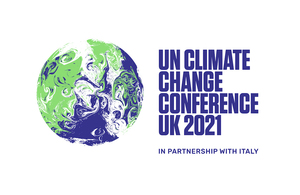Joint statement on principles for collaboration under the Forest, Agriculture and Commodity Trade (FACT) Dialogue
Following the first ministerial meeting of the Forest, Agriculture and Commodity Trade (FACT) Dialogue, 25 countries have endorsed a statement committing to working together to protect the world’s precious forests while also promoting sustainable trade.

1) Agricultural commodities are important for achieving the Sustainable Development Goals, notably promoting economic development, reducing poverty, food security, and improving the livelihoods of billions of people. At the same time, expanding areas for unsustainable agricultural production and other forms of land degradation may pose critical challenges to our environment, sustainability of forests and other important terrestrial ecosystems, increasing emissions, reducing resilience to climate impacts, and contributing to biodiversity loss.
2) Agriculture, Forestry, and other Land Use is a significant net source of GHG emissions. The loss and degradation of terrestrial ecosystems, such as forests, savannahs, natural grasslands, and wetlands, including tropical forests, temperate forests, and peatlands, are contributors to greenhouse gas emissions annually. At the same time, sustainable land management policies and technologies can contribute to adapting to climate change and mitigating greenhouse gas emissions. To meet the goals of the Paris Agreement and Sustainable Development Goals, all countries must work together to reduce these emissions and harness the opportunities for mitigation and adaptation, in accordance with the principles of equity and common but differentiated responsibilities and respective capabilities, in light of different national circumstances.
3) This is a shared challenge. Governments of producer and consumer countries need to collaborate to ensure that global markets reward practices that promote sustainability and disincentivise damaging practices. Effectively addressing this issue will contribute towards sustainable forests management, responsible agricultural practices, better conservation and protection of forests and other important ecosystems, as well as promoting investment, innovation, development, and trade.
Principles for collaboration
4) We agree to work together, with mutual respect, determination and in good faith, to find solutions in accordance with the following principles:
a. Partnership: partnership, based on mutual respect, good faith, cultural understanding, and cooperation, will be at the heart of our work.
b. Synergy: This should be the basis of our efforts, we will work to align our efforts, including discussion on shared policies and standards, so that our collective impact is greater than the sum of its parts.
c. Sovereignty: this should be respected and therefore each country has a right to establish its own policies and approaches to sustainable land use and commodity markets.
d. Collaboration and assistance: We will support each other in meeting our shared goals, including through knowledge sharing, finance, capacity building, as well as technical and technological assistance, and support investment in sustainable production methods.
e. Participation: The participation of all stakeholders with an inclusive approach should always be upheld, where possible, in the discussion, design, and development of our collective plans and actions. This will include the private sector, academia, smallholders, civil society organizations, local communities and indigenous peoples.
f. Respect for international commitments. We must honour our international commitments and obligations, inter alia, the Sustainable Development Goals, the Paris Agreement under the UNFCCC, the Convention on Biological Diversity, and agreements under the World Trade Organisation.
A common purpose
5) To support collaboration, the signatories aim to participate in the FACT Dialogue in a timely manner, as appropriate, to engage in the exchange of information, approaches, and experiences, to identify specific actions around the following areas:
a. Trade and market development: Aligning and synergizing the development, implementation, and enforcement of policies across the global market for agricultural commodities’ fair and equitable trade and market development as well as sustainable land use and investment in sustainably produced commodities.
b. Smallholder support: Increase the involvement of smallholders and local communities and indigenous peoples within the agricultural commodity supply chains, including identifying policy measures to support their inclusion in markets, access to financial resources, and support their role in sustainable forest management and preservation.
c. Transparency and Traceability: Explore ways and means to create the enabling environments that enhance transparency and traceability of information to support decision making throughout the supply chain through information collection, monitoring, and disclosure.
d. Research, Development, and Innovation: Strengthen and enhance our research, development, and innovation efforts to support and scale up productivity improvements within agricultural commodity systems to avoid expansion of unsustainable practices and maintain sustainability of terrestrial ecosystems.
6) In conclusion, it is crucial to regularly coordinate our efforts in this regard through the FACT Dialogue. We will share efforts to overcome strategic, political, and technical barriers to action. Working together we will enhance mutual understanding and encourage cooperation, subsequently boost investment, improve livelihoods, increase productivity, reduce costs, and expand the market for sustainably produced agricultural commodities.
This statement is supported by the following countries:
- Belgium
- Brazil
- Colombia
- Cote D’Ivoire
- Democratic Republic of Congo
- Denmark
- France
- Gabon
- Germany
- Ghana
- Indonesia
- Italy
- Japan
- Liberia
- Malaysia
- Netherlands
- Nigeria
- Norway
- Paraguay
- Peru
- Republic of Congo
- Republic of Korea
- Spain
- United Kingdom
- Uruguay
Updates to this page
Published 27 May 2021Last updated 27 July 2021 + show all updates
-
Germany has now endorsed the FACT Joint Statement and has been added to the list of signatories.
-
Netherlands has been added to the list of countries endorsing the statement committing to working together to protect the world’s precious forests while also promoting sustainable trade.
-
First published.